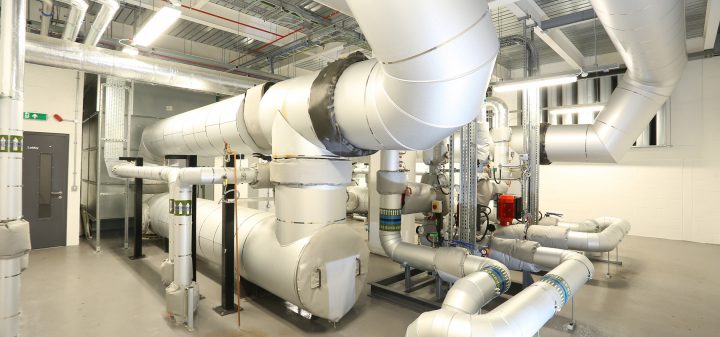

The UK heat network industry has given Government its recommendations on how to grow the sector and further protect its customers.
The ‘Shared Warmth – Industry Heat Network Task Force Report’ launched Wednesday 31st January 2018 recommends a regulatory framework that would see heat network developers commit to meeting minimum standards for pricing and customer services, and also sets out plans for decarbonisation, and reducing investment risk.
The Association for Decentralised Energy (The ADE), which led the Task Force, said the creation of a regulatory framework would provide a significant boost to the market, while reducing risk, and the cost of investing in the industry.
The ADE’s Director, Dr Tim Rotheray, said; “The recommendations made in this report are good news for the heat network industry, the environment and future heat network customers across the UK.”
“Government support and recognition of heat networks as a lower cost, lower carbon heat solution has seen their numbers increase across the UK, but moving forward we need to work together as an industry so that customers are protected and satisfied with the service they receive, and that heat networks are a low-risk investment opportunity.”
Claire Perry, Energy and Clean Growth Minister, said; “Heat networks offer huge potential to reduce carbon emissions from our homes and businesses, deliver significant cost savings for consumers and create thousands of skilled jobs.”
“Our ambitious Clean Growth Strategy sets out how we will support the market to build and extend heat networks across the UK. That’s why we are investing £320 million in the Heat Networks Investment Project and why we welcome the Heat Networks Task Force report which sets out clear proposals on how to reduce investment risk and develop a market which provides strong protections for consumers.”
Edina supplied the 4MWe natural gas fuelled combined heat and power (CHP) plant to the award winning Gateshead District Energy Centre, owned and operated by Gateshead Council – the first of its kind in the North East.
The energy centre has been designed to meet the future energy needs for Gateshead town centre, providing the low-carbon energy to the soon to be redeveloped 21-hectare Baltic Business Quarter and wider Gateshead Quays.
Edina’s Head of Global Sales, Hugh Richmond, comments; “A gas fired CHP is widely used within heat networks to great success. However, heat networks that are improperly designed, built and operated are subject to low levels of heat performance, which result in inaccurate billing leading to poor customer service.”
“The report highlights the need for a strategic plan that protects customer service obligations whilst also encouraging investment opportunity via a proposed Demand Assurance model. The model proposes that all developers would be obligated to meet minimum customer service requirements, and heat network design and build standards.”
“Demand Assurance would give greater security to developers, operators and customers and make ground breaking projects such as the Gateshead District Energy Centre more commonplace. The regulatory framework is instrumental in the growth and adoption of heat networks in the UK, supporting the governments green agenda”.
The report can be downloaded at https://www.theade.co.uk/resources/publications/shared-warmth-a-heat-network-market-that-benefits-customers-investors-and-t.
Gateshead District Energy Scheme won the ADE’s Visionary Project of the Year in 2017 and the ADE commented; “The scheme is a truly visionary project that provides heat through 3km of pipe and electricity through a private wire network to domestic, commercial and public sector customers. The scheme is one of the most unique projects in the country as it also offers peak power generation to help balance the grid through a mixture of battery storage and combined heat and power with heat storage.”
These Stories on Combined Heat and Power




Copyright © Edina. All Rights Reserved.